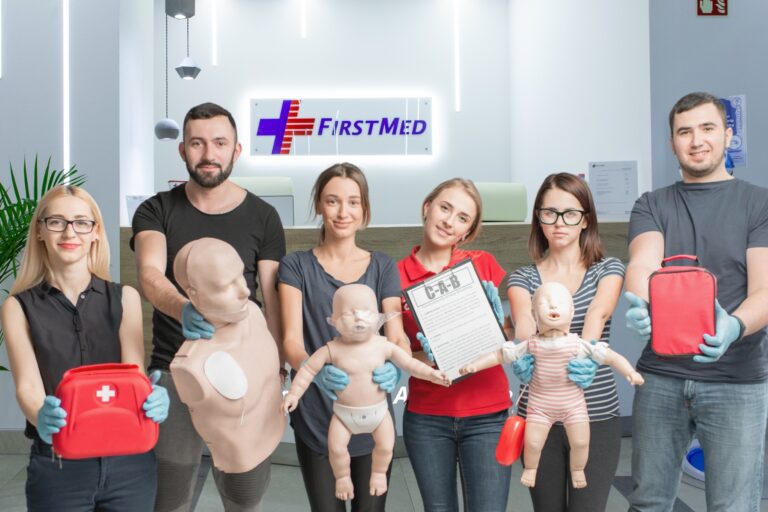Vaccination is the process of administration of antigenic material (a vaccine) to produce immunity to a disease. The material administered can either be live but weakened forms of pathogens (bacteria or viruses), killed or inactivated forms of these pathogens, or purified material such as proteins.
Why Vaccinate?
Iron lungs and braces for polio, the gasping breathing and characteristic sound of whooping cough, and the devastating birth defects caused by rubella are medical problems from another age, far removed from the modern world we live in. Infectious diseases such as measles, diphtheria, smallpox, and pertussis were the commonest causes of death in childhood. Thanks to the development and widespread use of safe, effective, and affordable vaccines, many of these devastating diseases have become rarities, especially in industrialized nations. Many millions of lives have been saved and serious diseases have been contained and even eradicated.
Why do we still need to vaccinate if these diseases are now very rare?
The bacteria and viruses causing these diseases still occur in the environment. Without vaccination, many of these diseases would become commonplace again. We already have experience of a resurgence of diseases such as whooping cough, diphtheria, and measles in areas where vaccination levels have dropped. The battle against infectious disease is far from over. Even as existing vaccines continue to exert their immunological power and new vaccines offer hopes for disease prevention in the future, reemerging and newly emerging infectious diseases still threaten the health of individuals and communities – recent examples include swine flu and avian flu, and now COVID-19. Increasingly, doctors encounter problems with antibiotic resistance. This will become a growing problem in the 21st Century. Active vaccination programs prevent disease thus limiting the need to use antibiotics.
Why is there so much controversy about vaccines today?
Since vaccines were first introduced, over 200 years ago, there has always been controversy and debate with many people suspicious or even openly against vaccination. Rigorous scientific methods in vaccine preparation and testing have helped reassure the public that vaccines are safe. Well-informed health professionals should be able to guide patients to the correct immunization program for them. Widespread clear information for the public to make informed choices is the other key to a successful immunization program.
What is Vaccination?
This is the process of administration of antigenic material (a vaccine) to produce immunity to a disease. The material administered can either be live but weakened forms of pathogens (bacteria or viruses), killed or inactivated forms of these pathogens, or purified material such as proteins. The process of stimulating the immune response, via the use of an infectious agent, is known as immunization.
How are different vaccines made?
An inactivated vaccine consists of virus particles that are grown in culture and then killed using a method such as heat or formaldehyde. The virus particles are destroyed and cannot replicate, but the virus capsid proteins are intact enough to be recognized and remembered by the immune system and evoke a response. When manufactured correctly, the vaccine is not infectious, but improper inactivation can result in intact and infectious particles. Since the properly produced vaccine does not reproduce, booster shots are required periodically to reinforce the immune response. In an attenuated vaccine, live virus particles with very low virulence are administered. They will reproduce, but very slowly. Since they do reproduce and continue to present antigen beyond the initial vaccination, boosters are required less often.
How does the COVID-19 vaccine work?
Pfizer and Moderna
„The Pfizer and Moderna vaccines are based on the virus’s genetic instructions for building the speck-like protein. The vaccine uses messenger RNA (mRNA), the genetic material that our cells read to make proteins. The molecule – mRNA – is fragile and would be chopped to pieces by our natural enzymes if it were injected directly into the body. To protect the vaccine these companies wrap the mRNA in oily bubbles made of lipid nanoparticles. This is the reason why these vaccines have to be stored at such low temperatures because at room temperature they would quickly fall apart.
The vaccine must be thawed before injection and diluted with saline. After dilution, the vial must be used within six hours. After injection, the vaccine particles bump into cells and fuse to them, releasing mRNA. The cell’s molecules read its sequence and build spike proteins. The mRNA from the vaccine is eventually destroyed by the cell, leaving no permanent trace. Some of the spike proteins from spikes migrate to the surface of the cell and stick out their tips. The vaccinated cells also break up some of the proteins into fragments, which they present on their surface. These protruding spikes and spike protein fragments can then be recognized by the immune system. Our immune systems recognize that the protein doesn’t belong there and begin building an immune response and making antibodies. At the end of the process, our bodies have learned how to protect against future infection. The benefit of mRNA vaccines, like all vaccines, is those vaccinated gain this protection without ever having the risk of the serious consequences of getting sick with COVID-19. „Credit:
New York Times: https://www.nytimes.com/interactive/2020/health/pfizer-biontech-covid-19-vaccine.html
CDC: https://www.cdc.gov/coronavirus/2019-ncov/vaccines/different-vaccines/mrna.html
Sputnik V, Oxford-AstraZeneca
“These vaccines use a viral vector. This means part of the Coronavirus’s genetic code is injected into the body, triggering the body to begin making viral proteins, but not the whole virus, which is enough to train the immune system to attack. These vaccines use a more traditional method compared to the Pfizer and Moderna vaccines. This method is successfully used in many well-known vaccines like rabies. These vaccines can be stored at regular fridge temperature.”
Credit:
What are the side effects of vaccination?
Any vaccine can cause side effects. For the most part, these are minor (for example, a sore arm or low-grade fever) and go away within a few days. Rarely, a child may experience a severe allergic reaction or a neurological side effect, such as a seizure. Remember, vaccines are continually monitored for safety and like any medication, vaccines can cause side effects. However, a decision not to immunize a child also involves risk and could put the child and others who come into contact with him or her at risk of contracting a potentially deadly disease.
Why are childhood vaccinations important?
Childhood vaccines offer protection from a variety of serious or potentially fatal diseases, including diphtheria, measles, meningitis, polio, tetanus, and whooping cough. The reason that these diseases seem uncommon is because of active vaccination programs worldwide. If immunization rates drop, vaccine-preventable diseases may once again become common threats.
Do vaccines cause autism?
Vaccines do not cause autism. Despite much controversy on the topic, researchers haven´t found a connection between autism and childhood vaccines. In fact, the original article that ignited the debate years ago has been retracted.
Why are vaccines given to babies at such an early age?
It’s true that newborn babies are immune to many diseases because they have antibodies they got from their mothers. However, the duration of this immunity may last only a month to about a year. Further, young children do not have maternal immunity against some vaccine-preventable diseases, such as whooping cough. Early vaccination — sometimes beginning shortly after birth — is essential because these diseases are most likely to occur when a child is very young and the risk of complications is greatest. If you postpone vaccines until a child is older, it may be too late.
My family is very healthy. Is it a problem if I opt out of the childhood vaccination program?
Skipping vaccines is not recommended. This can leave your child vulnerable to potentially serious diseases that could otherwise be avoided. Furthermore, there are some children and adults who can’t receive certain vaccines for medical reasons, or who don´t seem to respond to certain vaccines — the only protection from vaccine-preventable diseases for them is the immunity of the people around them. If you have any reservations about particular vaccines, discuss your concerns with your child´s doctor. If your child falls behind the standard vaccines schedule, catch-up vaccinations are typically available. It usually isn´t necessary to repeat earlier doses of a particular vaccine.
Routine and travel vaccines
Vaccines can be divided into a routine, recommended, and required. There is a standard list of routine childhood and adult vaccines which varies slightly according to country. In addition, there are vaccines specifically recommended for travel to certain regions which give protection against diseases such as Typhoid, Tick-borne encephalitis, and Rabies. Finally, there are required vaccines for travel to certain countries. The only vaccine currently required by International Health Regulations is yellow fever vaccination for travel to certain countries in sub-Saharan Africa and tropical South America. Also, Meningococcal vaccination is required by the government of Saudi Arabia for annual travel during the Hajj.
Due to recent announcements made by the government, we will update this page with the link where you can register without the TAJ number for the COVID-19 vaccines.




